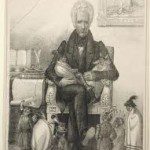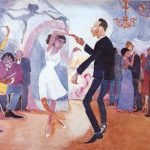Stories of witches and witch-hunting in early modern Europe have captivated us for centuries. During the early modern period of European history, stretching from roughly 1450 to about 1750, about 100,000 people—most of them women—were tried for the crime of witchcraft. About half of these people were executed, in most cases by burning at the stake. But witchcraft is more than just a Halloween story–for the men and women involved it was a very real, very frightening aspect of daily life.
Guest Brian Levack explains that, at its heart, medieval accusations of witchcraft and sorcery are not supernatural at all, but instead based in the all too human need to explain the ordinary cycles of birth, death, sickness, wellness, and the constant struggle between rich and poor.



